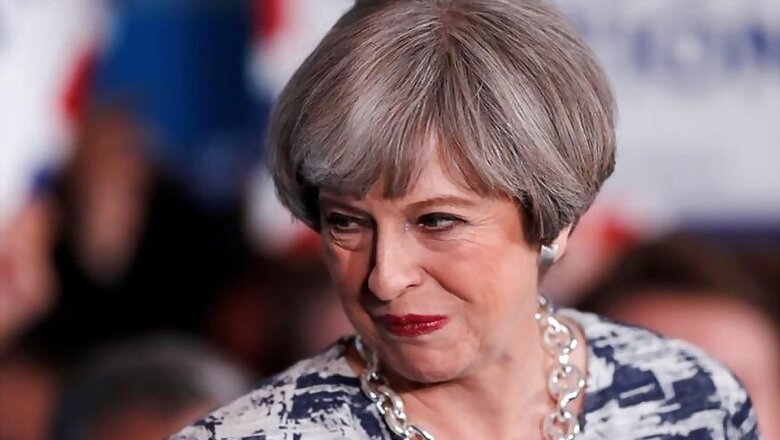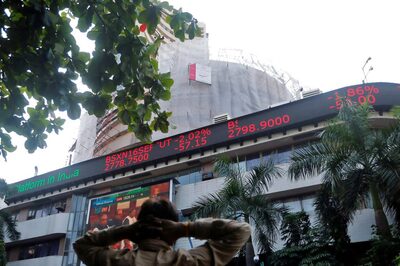
views
London: In the big book of political blunders, Theresa May's decision to hold a snap election to solidify her Brexit mandate will rank among the most memorable — and the most unnecessary.
The British prime minister was cruising along two months ago with a solid majority in Parliament and several years to run on her party's mandate. There was no need for her to put her position on the line, and she had said earlier that an election was not needed.
But her party's huge lead in the opinion polls — 20 percent in most cases — made the prospect too tempting to pass up.
So she flung the dice — and marched off a political cliff.
After Thursday's vote, May's Conservative Party still has the largest number of lawmakers, but lacks a parliamentary majority. It may well be able to form a minority government in the coming days and weeks, but the prime minister's ability to cling to the keys of Number 10 Downing Street is very much in doubt, and her stated goal of unifying the country behind her ahead of the upcoming Brexit negotiations with EU leaders is utterly out of reach.
The result has caused a fresh run on the British pound sterling, and made EU leaders still more uncertain about Britain's Brexit priorities.
Voters may have been unimpressed with her refrain that "no deal is better than a bad deal" because it raised the prospect of Britain crashing out of the EU bloc without a trade and immigration system to replace the existing, well-integrated procedures that have evolved over decades of European integration.
Corbyn's newly energized Labour Party officially backs Brexit — since voters endorsed it in a referendum last year — but many important figures in the party advocate a much "softer" Brexit, and their views now may now carry sway.
Corbyn's rise is one of the biggest surprises. He was seen by many commentators as too leftwing, too much a pacifist, too willing to cozy up to unsavory groups like Hamas and the IRA. The bearded, often rumpled Corbyn seemed to suffer from a chronic charisma deficit — until the campaign began. Then, he ran a disciplined, coherent campaign despite a few miscues, and deftly capitalized on May's mistakes.
He gained ground when she seemed to suggest what was quickly called a "dementia tax" that could cause the elderly to have to sell their homes to pay for nursing care, and in the final days repeatedly hammered May for cutting 20,000 police officers during her tenure as interior minister — an assertion that carried weight as major terrorist attacks hit Manchester and London.
Osborne used the front page of his newspaper to predict "Corbyn Chaos" — and Foreign Secretary Boris Johnson repeatedly ridiculed Corbyn in the campaign's waning moments.
But the attacks did not seem to work. It is May, not Corbyn, whose career is in tatters.




















Comments
0 comment